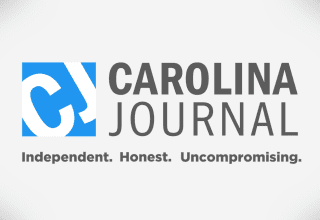North Carolina lawmakers will consider implementing a federally authorized school choice tax credit program, part of the recent “One Big Beautiful Bill Act” passed by Congress, when they reconvene on July 29. The same day, lawmakers are scheduled to override two vetoes by Governor Josh Stein on education-related legislation on July 29.
Under this new federal program, taxpayers can donate up to $1,700 to nonprofit Scholarship-Granting Organizations (SGOs), which in turn issue stipends to students for private school expenses, including tuition and other allowable costs. A key feature is that donors receive a dollar-for-dollar reduction in their income taxes, effectively making the donation cost-free.
The program, set to begin in 2027, allows families earning up to three times the median income to qualify for scholarships. While the legislation provides significant funding — estimated to cost nearly $26 billion through 2034 — its implementation largely depends on whether individual states and their governors opt into the program.
North Carolina appears poised to join that list. And school-choice advocates say that is a good thing, with some notable caveats.
“OBBA’s tax credit is legislation that has the potential to turbocharge parental choice in North Carolina. That’s a good thing,” said Dr. Robert Luebke, director of the Center for Effective Education at the John Locke Foundation. “However, as everyone knows, anything that comes from the federal government comes with strings attached. ‘What are those strings?’ is a question that still needs an answer since the regulations for administering the program haven’t been written yet.”
“There are some big questions: How will the program be administered? How the federal program interact with the Opportunity Scholarship Program? How will religious freedom will be protected?” Luebke added. “How these are answered all bear watching. The bottom line: If parents can continue to choose where and how their children are educated, the OBBA tax credit can be a tremendous boost to parents and children who want better educational options. If OBBA proves otherwise, North Carolina should pass.”
“OBBBA’s tax credit is a bold, legally sound mechanism for giving families control over their children’s education, regardless of income or zip code. And with implementation rules coming from the U.S. Treasury Department — not Education — it sidesteps bureaucratic gridlock and preserves state and local control,” added Brian Jodice, national press secretary for the American Federation for Children, in a statement.
NC remains a strongly pro-school choice state. A Carolina Journal poll of likely voters from January put support for the Opportunity Scholarship Program at 61%. A similar 61% of voters believe that school funding should be tied to students’ individual educational needs.
When asked about their ideal educational environment if cost weren’t a factor, voters revealed a significant preference for private schools. A plurality — 42% — of respondents would choose to send their children to private schools if money weren’t an issue. Most voters feel comfortable sending their children to local public schools, but a notable 37% remain uncomfortable, citing concerns about values, quality, and safety.
The post NC lawmakers poised to implement Big Beautiful Bill Act’s expansion of school choice first appeared on Carolina Journal.
The post NC lawmakers poised to implement Big Beautiful Bill Act’s expansion of school choice appeared first on First In Freedom Daily.
Click this link for the original source of this article.
Author: David N. Bass
This content is courtesy of, and owned and copyrighted by, https://firstinfreedomdaily.com and its author. This content is made available by use of the public RSS feed offered by the host site and is used for educational purposes only. If you are the author or represent the host site and would like this content removed now and in the future, please contact USSANews.com using the email address in the Contact page found in the website menu.








